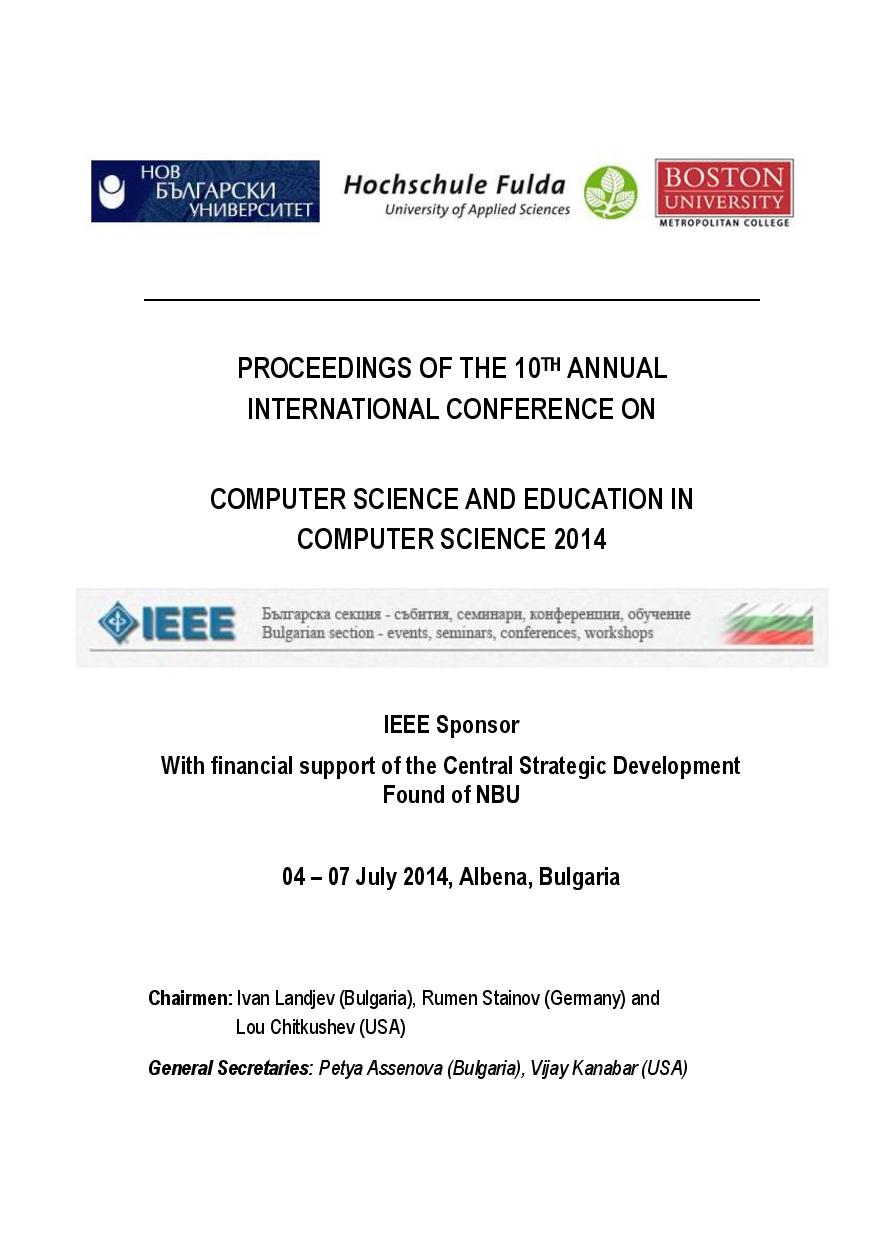Evaluation of ICT Curricula using European e-Competence Framework
Evaluation of ICT Curricula using European e-Competence Framework
Author(s): George Sharkov, Petya Asenova, Valentina Ivanova, Ivaylo Gueorguiev, Pavel VarbanovSubject(s): Higher Education , ICT Information and Communications Technologies
Published by: Нов български университет
Keywords: e-skills; e-competences; ICT curriculum design; e-leadership; digital IT jobs; education methods and tools; e-CF;
Summary/Abstract: This paper presents a method for evaluation of e-competences (knowledge, skills and attitudes/proficiency levels) as outputs of university ICT bachelor and master programs. The benchmarking is based on the European e-Competence Framework (e-CF) - a set of 40 competences derived from IT job profiles, expected to become an EU standard by CEN in 2015. The method and e-CF framework can be used by ICT business, policy makers and public authorities, HR organizations, education and VET, as well as in cross-industry “digitized” areas that require e-Leadership skills. The mapping method is bidirectional – starting with courses/modules assessment of the learning outcomes towards e-CF, then aggregate to an e-competences “passport” of entire program and comparison with target ICT jobs profiles (CEN defined ICT jobs, local industry specified profiles, or custom made university profile). The analysis of the mappings allows updates and improvements at the program level to meet industry demands, but also a fine tuning of the courses to gradually build competences and have a coherent theoretical and practical learning path. A specific bidirectional “traceability matrix” tool was developed to perform the mapping. The mapping was piloted to evaluate two programs of the New Bulgarian University - BSc on Networking Technologies and MSc on IT Project Management (IT PM). The paper presents the method and results of the approach, analyses its applicability for continual improvements of curricula and the teaching approach in order to create long-term ICT competences which meet better industry needs, European and global trends.
Journal: Computer Science and Education in Computer Science
- Issue Year: 10/2014
- Issue No: 1
- Page Range: 267-286
- Page Count: 20
- Language: English

